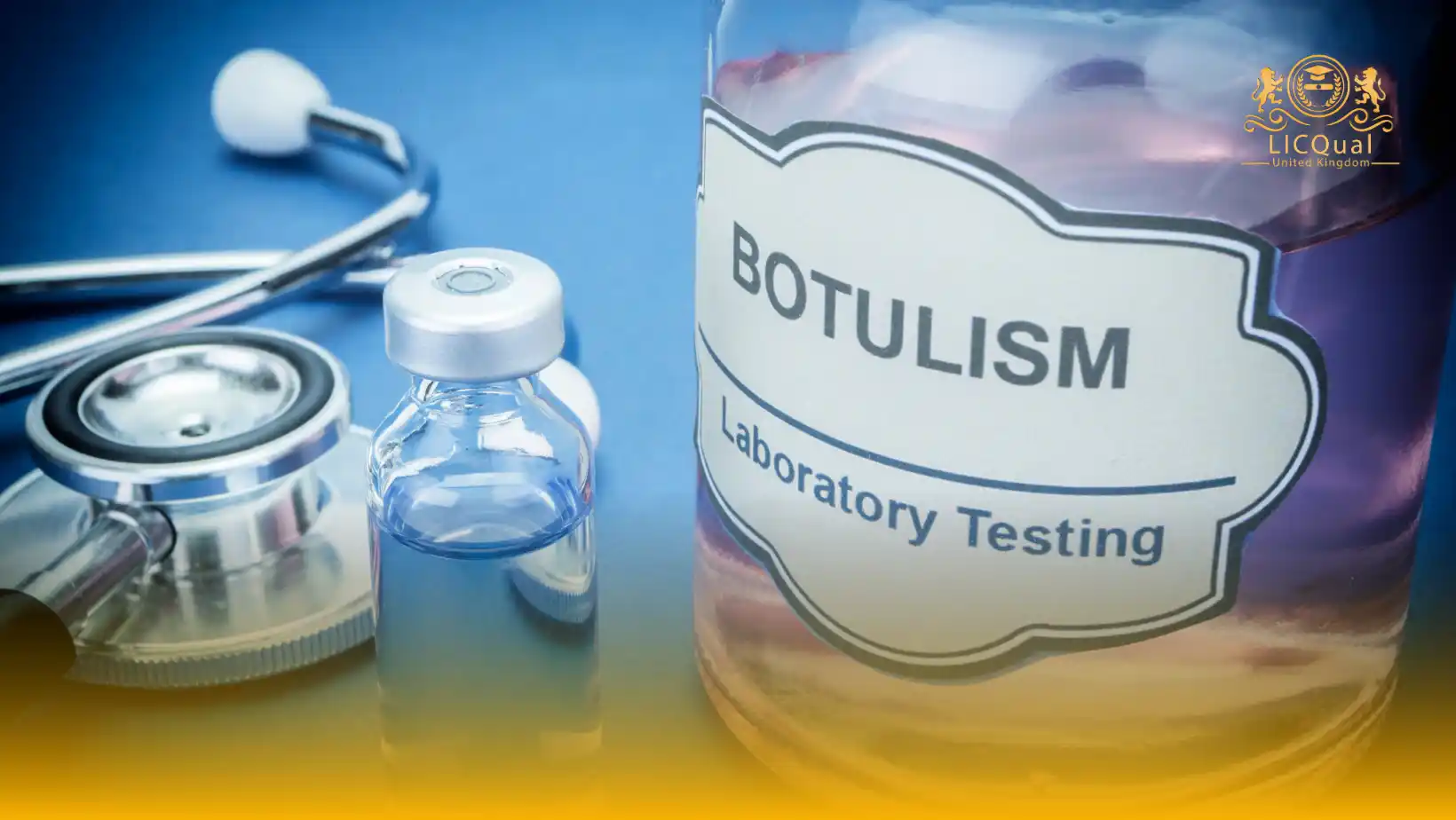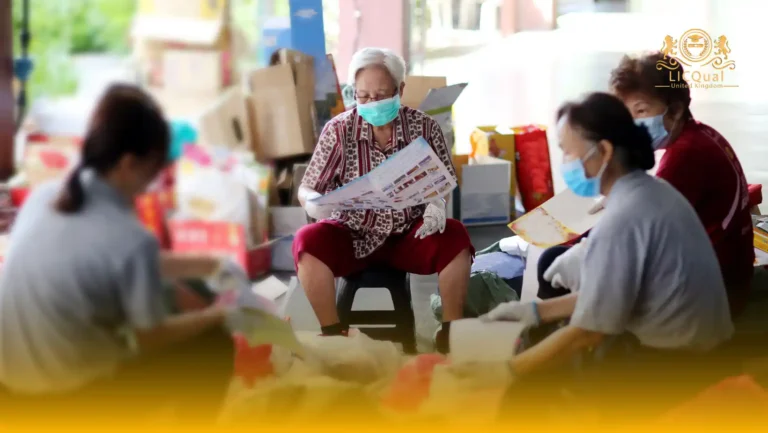The LICQual Level 3 Certificate in Clinical Toxicology (Cert Clinical Toxicology) is a specialised qualification designed for learners who wish to develop advanced knowledge and practical skills in the assessment, management, and prevention of toxicological conditions. This course provides a comprehensive understanding of clinical toxicology principles, including the identification of toxic agents, their effects on human health, and evidence-based approaches to treatment and risk management.
This qualification is aimed at professionals who wish to enhance their career prospects, expand their scientific expertise, and strengthen their Continuing Professional Development (CPD). Learners will explore areas such as toxicokinetics, toxicodynamics, environmental and occupational toxicology, clinical case analysis, and emergency management of poisoning. By integrating both theoretical knowledge and practical applications, the course ensures learners are equipped to make informed clinical decisions and contribute effectively to healthcare, laboratory, or research settings.
Centres delivering this qualification must ensure that competent and qualified staff, alongside all necessary learning materials, laboratory facilities, and technological resources, are available to provide a high-quality training experience. Access to up-to-date scientific literature, practical case studies, and structured guidance ensures learners can achieve their learning outcomes safely and effectively.
Completing the LICQual Level 3 Certificate in Clinical Toxicology provides learners with a recognised qualification that enhances professional competence, improves patient care, and opens pathways for career progression in clinical toxicology, healthcare services, and scientific research. This course is ideal for learners committed to advancing their knowledge and making a meaningful impact in the field of toxicology.
Course Overview
Qualification Title
LICQual Level 3 Certificate in Clinical Toxicology (Cert Clinical Toxicology)
Total Units
6
Total Credits
24
GLH
120
Qualification #
LICQ2201146
Qualification Specification
To enroll in the LICQual Level 3 Certificate in Clinical Toxicology (Cert Clinical Toxicology), applicants must meet the following criteria:
|
Qualification# |
Unit Title |
Credits |
GLH |
|---|---|---|---|
|
LICQ2201146-1 |
Fundamentals of Clinical Toxicology |
4 |
20 |
|
LICQ2201146-2 |
Toxicokinetics and Toxicodynamics |
4 |
20 |
|
LICQ2201146-3 |
Environmental, Occupational, and Industrial Toxicology |
4 |
20 |
|
LICQ2201146-4 |
Clinical Assessment and Management of Poisoning |
4 |
20 |
|
LICQ2201146-5 |
Regulatory Compliance, Ethics, and Safety in Toxicology |
4 |
20 |
|
LICQ2201146-6 |
Research Methods and Emerging Trends in Clinical Toxicology |
4 |
20 |
By the end of this course, learners will be able to:
Unit 1: Fundamentals of Clinical Toxicology
Learners will be able to:
- Understand the principles and scope of clinical toxicology.
- Describe the classification and properties of toxic substances.
- Explain the role of clinical toxicology in healthcare and public safety.
- Analyse the impact of toxic exposures on human health.
Unit 2: Toxicokinetics and Toxicodynamics
Learners will be able to:
- Understand the absorption, distribution, metabolism, and excretion (ADME) of toxic agents.
- Analyse dose-response relationships and mechanisms of toxic action.
- Apply knowledge of toxicokinetics to predict biological effects.
- Evaluate the factors influencing toxicity in different populations.
Unit 3: Environmental, Occupational, and Industrial Toxicology
Learners will be able to:
- Understand the sources and types of environmental and occupational toxins.
- Analyse the impact of chemical, biological, and physical agents on health.
- Apply principles of risk assessment and hazard management.
- Demonstrate awareness of workplace safety and preventive strategies.
Unit 4: Clinical Assessment and Management of Poisoning
Learners will be able to:
- Understand the clinical presentation of poisoning and toxic exposures.
- Apply assessment techniques to identify and manage cases of poisoning.
- Evaluate treatment strategies including antidotes, supportive care, and monitoring.
- Demonstrate knowledge of emergency response and patient care protocols.
Unit 5: Regulatory Compliance, Ethics, and Safety in Toxicology
Learners will be able to:
- Understand legal and regulatory frameworks governing clinical toxicology.
- Apply ethical principles in the handling, study, and reporting of toxic substances.
- Demonstrate knowledge of safety protocols and laboratory best practices.
- Evaluate compliance requirements to ensure patient and public safety.
Unit 6: Research Methods and Emerging Trends in Clinical Toxicology
Learners will be able to:
- Apply research methodologies relevant to clinical toxicology studies.
- Critically analyse current literature and emerging trends in toxicology.
- Understand the application of innovative technologies in toxicological assessment.
- Develop skills for reflective practice and continuing professional development (CPD).
The LICQual Level 3 Certificate in Clinical Toxicology (Cert Clinical Toxicology) is designed for healthcare professionals, pharmacists, researchers, and graduates who want to specialize in toxicology, poison management, and risk assessment. This internationally accredited clinical toxicology certification is ideal for those seeking CPD credits, career advancement, and recognition in global healthcare systems. Whether you are already practicing or planning to enter the field, this program equips you with the skills and qualifications to stand out in toxicology and emergency medicine.
1. Practicing Pharmacists
- Professionals aiming to expand into toxicology and poison management
- Interested in drug overdose management and medication safety
- Seeking accredited clinical toxicology certification for career growth
- Looking to earn CPD credits recognized internationally
- Committed to improving patient outcomes through evidence-based toxicology
2. Healthcare Professionals in Clinical Settings
- Doctors, nurses, and allied health staff working with toxicological emergencies
- Those aiming to strengthen collaboration with toxicology specialists
- Professionals seeking structured training in poison management protocols
- Interested in international healthcare qualifications for career progression
- Focused on enhancing patient safety and treatment compliance
3. Pharmacy and Life Sciences Graduates
- Recent graduates seeking advanced clinical toxicology certification
- Individuals preparing for international healthcare and research careers
- Looking to build expertise in toxicology and risk assessment
- Interested in flexible online learning with accreditation
- Focused on boosting employability in competitive healthcare markets
4. International Researchers and Scientists
- Professionals seeking globally recognized clinical toxicology qualifications
- Those aiming to meet international accreditation standards
- Interested in CPD credits for career advancement abroad
- Looking to expand knowledge in toxicology and pharmaceutical sciences
- Committed to strengthening professional credibility worldwide
5. Clinical Researchers and Academics
- Researchers focusing on toxicology, poison control, and drug safety
- Academics seeking structured certification for teaching and training
- Professionals aiming to contribute to evidence-based toxicology studies
- Interested in advanced toxicology methodologies for healthcare
- Looking to align with international healthcare education standards
6. Emergency Medicine and Public Health Specialists
- Professionals working in emergency departments and poison control centers
- Those aiming to improve toxicology response protocols
- Interested in accreditation and compliance standards for toxicology practice
- Focused on strengthening healthcare systems with advanced toxicology expertise
- Committed to enhancing patient safety in critical care environments
7. Professionals Seeking Career Advancement
- Individuals aiming for leadership roles in toxicology and pharmaceutical sciences
- Those wanting to stand out with accredited clinical toxicology certification
- Interested in international recognition and CPD credits
- Looking for career growth in hospital, clinical, or academic settings
- Committed to lifelong learning and healthcare excellence
Centres delivering the LICQual Level 3 Certificate in Clinical Toxicology (Cert Clinical Toxicology) must meet strict standards to ensure high-quality training, effective learner support, and adherence to international best practices. Key requirements include:
- Qualified and Experienced Staff: Trainers and assessors must hold relevant qualifications and professional experience in clinical toxicology, healthcare, or related scientific fields.
- Comprehensive Learning Resources: Centres must provide access to up-to-date textbooks, clinical guidelines, laboratory manuals, case studies, and digital resources relevant to clinical toxicology.
- Facilities and Equipment: Centres should ensure classrooms, laboratory or simulation facilities, and IT resources are adequately equipped to support both theoretical and practical learning.
- Assessment and Quality Assurance: Centres must implement robust assessment procedures, internal verification, and quality assurance systems to maintain high academic and professional standards.
- Learner Support Services: Academic guidance, mentoring, and career development support must be available to help learners achieve successful outcomes.
- Access to Technology: Learners must have access to computers, reliable internet connectivity, and online learning platforms for blended or distance learning delivery.
- Compliance with Standards: Centres must adhere to LICQual policies, ensuring ethical training practices, learner safety, and regulatory compliance.
By meeting these requirements, centres can deliver a high-quality learning experience, ensuring learners gain the knowledge, practical skills, and professional competence required to excel in clinical toxicology, healthcare, and toxicological research.
Assessment and Verification
All units within this qualification are subject to internal assessment by the approved centre and external verification by LICQual. The qualification follows a criterion-referenced assessment approach, ensuring that learners meet all specified learning outcomes.
To achieve a ‘Pass’ in any unit, learners must provide valid, sufficient, and authentic evidence demonstrating their attainment of all learning outcomes and compliance with the prescribed assessment criteria. The Assessor is responsible for evaluating the evidence and determining whether the learner has successfully met the required standards.
Assessors must maintain a clear and comprehensive audit trail, documenting the basis for their assessment decisions to ensure transparency, consistency, and compliance with quality assurance requirements.







